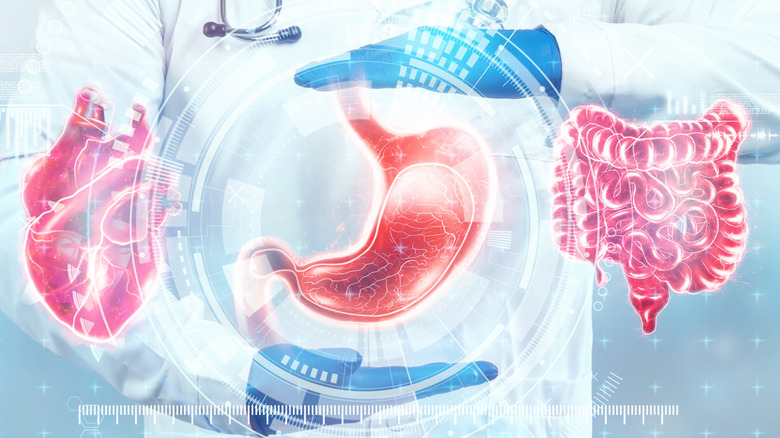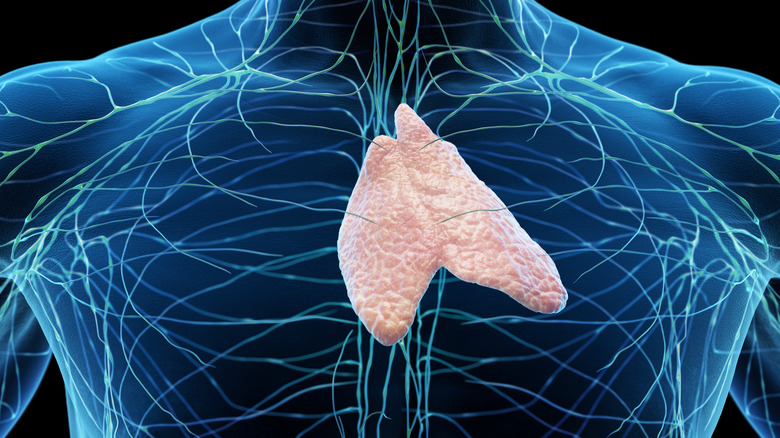The 'Useless' Organ That's More Important To Your Health Than You Thought
Our bodies have more than a handful of vestigial body parts and organs, which refer to parts that have little to no purpose. The appendix, male nipples, and wisdom teeth are just a few of the organs and parts that remain in our bodies as examples of evolutionary adaptation. Similarly, scientists and doctors believed for a long time that the thymus gland was useless beyond childhood, but new research indicates otherwise.
A thymectomy (thymus removal) is a routine procedure performed in adults during a variety of surgeries. Under the theory that the thymus is still an important organ for adult health, a team of researchers led by Massachusetts General Hospital investigators compared the records of 1,146 patients who underwent cardiothoracic surgeries with thymectomies against a control group of the same demographic who had the same surgeries without the removal.
Published in the New England Journal of Medicine in August 2023, the researchers found that the risk of death for any reason five years after surgery between the thymectomy and control groups was about 8.1% and 2.8%, respectively. Over the same time period, the risk of cancer was about 7.4% for thymectomy patients but just 3.7% for the control group. There were similar gaps between the groups when they compared patient records beyond the five-year mark after surgery. Senior author David T. Scadden, MD, said in a press release, "By studying people who had their thymus removed, we discovered that the thymus is absolutely required for health. If it isn't there, people's risk of dying and risk of cancer is at least double ... This indicates that the consequences of thymus removal should be carefully considered when contemplating thymectomy."
The purpose of the thymus
The thymus is located in the upper chest, resting behind the sternum between the lungs but in front of the ascending aorta (the large vessel connected to the heart). To fully grasp the significance of the new findings, though, it can help to understand the functions of such human organs. For starters, this soft, pinkish-gray gland functions in two of the major body systems — the endocrine and lymphatic systems.
For the lymphatic system, the thymus plays a vital role in the immune system. It's primarily responsible for training T lymphocytes (T cells) and releasing them into the bloodstream when they mature. Additionally, it produces specific T cells and B lymphocytes (B cells) that other organs don't. The mature T cells travel to lymph nodes and other organs, helping the immune system fight against allergens, infections, tumors, and other diseases. Meanwhile, the B cells maintain healthy cells and detect harmful ones.
As part of the endocrine system, the thymus produces and releases hormones. The thymulin and thymosin hormones assist with making special T cells, while the thymopoietin hormone stimulates T cell production and signals the release of hormones by the pituitary gland. Plus, the thymus makes the same or similar hormones to those that other organs produce, such as a growth-regulating hormone, insulin, melatonin, and a breast-development hormone.
The height of the thymus gland's activity occurs during infancy and childhood. During this time, the organ is also relatively large. As its activity begins to slow down after puberty, the gland begins to shrink, becoming very small in adults and mostly replaced with fat. Perhaps that's why its importance has been overlooked for so long.

